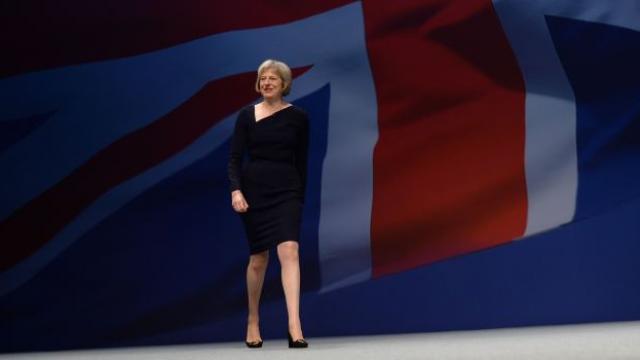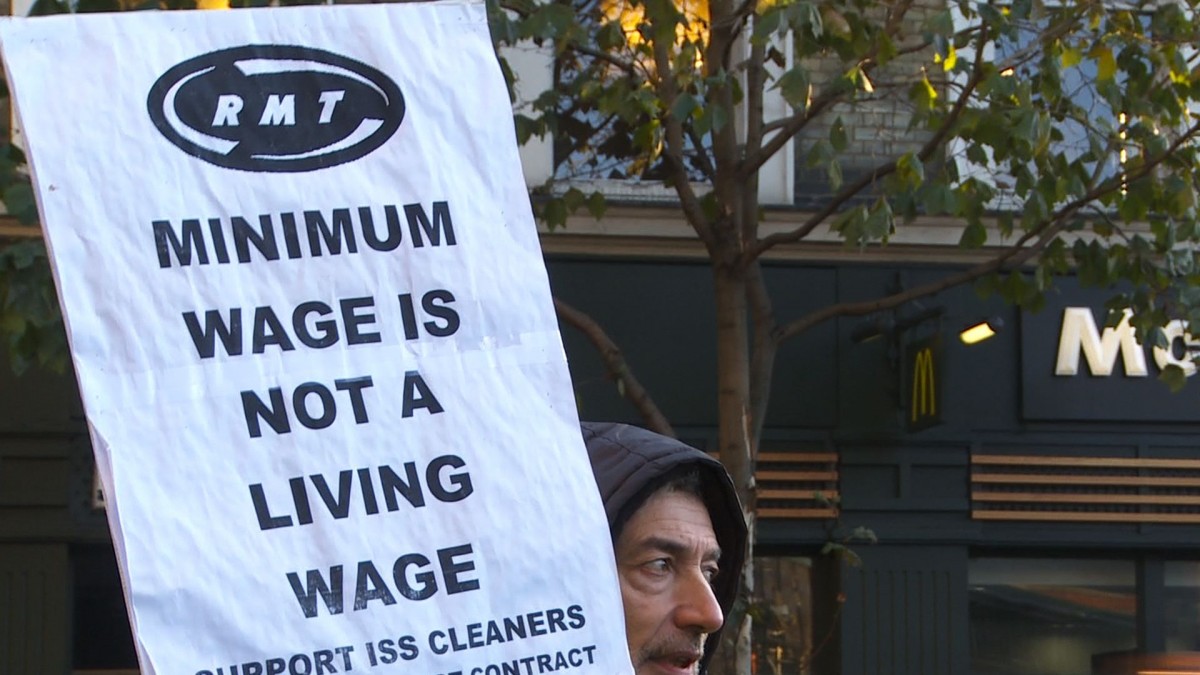
Following her dramatic arrival last month into office, Britain’s new Prime Minister Theresa May made some definitive moves in the drafting of her new cabinet: bumbling Boris Johnson, the face behind the Leave campaign, as the new Foreign Secretary; Euro-bashing Liam Fox as Secretary of State for International Trade; and Chris Grayling, another staunch Brexiteer, as Transport Secretary, to name just three. Despite campaigning to stay in Europe, May appears determined to live up to her promise that "Brexit means Brexit."
During her campaign speech before taking office, May emphasized the need to address key social issues in Britain, including tackling inequality and excessive executive pay. Now, less than a month into her tenure, whether the Conservative PM is adhering to her pledge to create a nation that is “fair for all” is sounding more and more dubious.
Freeman to the Helm
News emerged in late July that May’s new Head of Policy, George Freeman, had previously developed plans to reduce the minimum wage and limit employment rights in Britain’s poorest areas. In 2013, Freeman, a Conservative Member of Parliament (MP), authored a paper arguing for the "regionalization" of the minimum wage. The "Innovation Economy Industrial Policy for the 21st Century," which Freeman co-wrote with fellow MP Kwasi Kwarteng, suggests reducing the minimum wage in regions of the country with already lower-than-average incomes.
What Freeman describes as a “programme of bold policies to tackle to the 'toxic legacy'... of the crash of New Labour’s ‘Borrowed Boom,’” includes other radically unfair policies that favor the rich at the expense of the poor, including cutting the corporation tax for large businesses to just 10%, exempting organizations from having to pay tax or follow employment rights, and abolishing green energy subsidiaries.
The paper also called for taking skilled workers out of public sector jobs and moving them into the private sector. “By maintaining uniform national minimum wages and wage rates in the public sector, the Government creates real imbalances in regional labour markets,” Freeman wrote.
Upon his appointment as Head of Policy, Freeman bragged his new position will help shape the government’s program and guide the “deep economic and social reforms we need to make.” As the Independent reports,, the appointment of Freeman “signals the possibility of a radically right-wing direction for industrial policy under the new PM.”
The opposition party criticized May’s hiring of Freeman, saying the decision reveals her “true right-wing agenda.” The Labour MP Jonathan Ashworth said, “These are unfair policies that are bad for working people... The new Prime Minister may offer warm words about reaching out and putting working people first – but her actions show that those at the top of the Tory party will do nothing for working people.”
Undoubtedly drumming up support, Britain’s second female prime minister has made some steadfast pledges to put Conservatives at the service of working people. During the Tory leadership race, May promised to place workers on the boards of large companies, to curb excess corporate pay, and to create a country that works for everyone and “not just a privileged few.”
“So, if I’m prime minister, we’re going to change that system, and we’re going to have not just consumers represented on company boards, but workers as well,” said May during her prime minister election bid. Fast forward several weeks and May’s appointment of a string of decidedly right-wing Tories to her cabinet puts her professed “raise everybody’s boats” promises starkly into question.
By contrast, Labour Party leader Jeremy Corbyn made his plans for a raised minimum wage and greater economic equality in Britain clear. In April, prior to the Brexit vote, Corbyn suggested an E.U.-wide minimum wage in order to provide workers in Britain a fairer economic shot. “There is nothing wrong with people wanting to migrate to work around the continent, but there has to be a level playing field on pay and conditions,” he said in a Referendum speech. By introducing an E.U.-wide minimum wage tied to the cost of living in each member state, according to Corbyn, immigration would be slowed as it would reduce the incentive for people to immigrate to the UK in search of jobs.
Now that the U.K. has voted to leave the E.U., and Corbyn’s Labour leadership stands imperiled, such European-wide, fair-for-all minimum wage policies look like little more than a pipe dream. Instead, as the new British government settles into Westminster, the promise of a fair-for-all society appears less likely.
Reiterating the belief that May doesn’t hold the equality credentials to make Britain a fairer society, Labour MP Yvette Cooper warned that the PM helped divide Britain as Home Secretary under David Cameron – and that now, in the top leadership position, she “won’t heal it.”. Writing for the Guardian, Cooper warned not to believe the hype that a Tory-led government under May would put Britain in safe hands and help unite the country.
“There are huge risks for Britain ahead that her politics won’t solve. Indeed, division will grow,” wrote Cooper. Several weeks after taking office, and with her appointment of several staunch Brexiteers with right-leaning policies, May’s critics seem to have a point.
3 WAYS TO SHOW YOUR SUPPORT
- Log in to post comments














